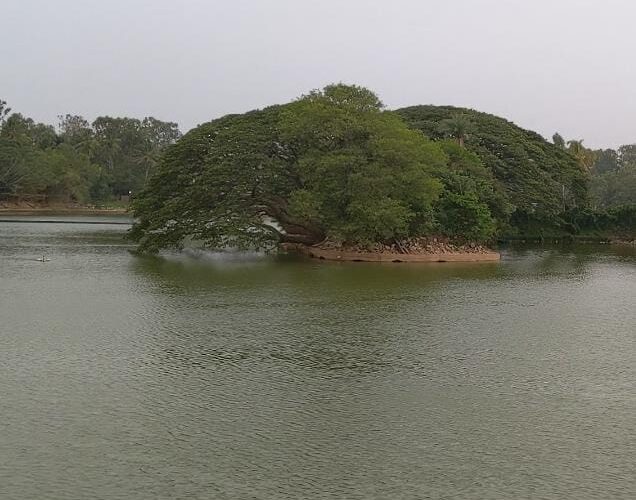India’s Minister for Environment, Forest and Climate Change, Mr Bhupender Yadav, delivered India’s Formal Statement at the CoP16 of the UN Convention to Combat Desertification (UNCCD), in Riyadh, Saudi Arabia, today.
United Nations Convention to Combat Desertification (UNCCD) is the only legally binding international agreement linking environment and development to sustainable land management.
The sixteenth session of the Conference of the Parties to the UNCCD (COP 16) takes place in Riyadh, Saudi Arabia, from 2 to 13 December 2024. The member countries will undertake a midterm evaluation of the UNCCD 2018−2030 Strategic Framework, adopt the UNCCD’s biennial budget, and negotiate decisions around the sustainable use of land.
The Minister informed that India has adopted a comprehensive approach towards addressing land degradation, building drought resilience, ecosystem restoration and biodiversity enhancement.
He said, “In India, the earth is traditionally revered as Mother Earth. Drawing a parallel between the nurturing nature of Mother Earth with that of our own mothers, our Hon’ble Prime Minister has launched a mass-based campaign, ‘Plant for Mother’, through which we have planted more than 1 billion saplings this year. We urge all countries and their citizens to join this unique initiative, which would be the biggest tribute to Mother Earth and would also contribute to addressing issues of land degradation and climate change.”
Mr Yadav emphasized that India believes and asserts that land is not only for human beings and that humans share this planet with other life forms which too have rights over earth’s resources. India’s cultural ethos recognises this principle and aptly India has taken the lead in launching the International Big Cat Alliance, a multi-country, multi-agency coalition of a range of countries of big cats.
Further, India reaffirms its commitment under the Bonn challenge of restoring 26 million hectares of degraded land by 2030, of which more than 22.50 million hectares have already been restored, the Minister stated.
Delving deeper into India’s approach to sustainable development, Mr Yadav stated, “India believes that land restoration and building drought resilience require community involvement for lasting success and have adopted a “Whole of Government” and “Whole of Society”, approach to restoration of degraded land through the Green India Mission, in which community participation is the backbone. India advocates the adoption of an environment-friendly lifestyle and the usage of traditional knowledge in all spheres of life. India affirms that healthy land serves as a critical foundation for regional stability. By mitigating the drivers of forced migration, stable communities, and progressive economies can be created.”
Further, the Minister said that India asserts that knowledge sharing and capacity building through partnerships enhance drought preparedness and resilience. Hence, government, agencies, industry, communities etc. should come together and take up every opportunity for collaboration to strengthen drought early warning systems, promote drought-resilient agriculture, and create sustainable livelihoods.
For water conservation, a very special initiative namely Amrit Sarovar has been launched under which water retention structures in every district of the country are developed and rejuvenated. We are ready to share our experience with all. Under the Green Credit Programme degraded land parcels are identified and restored ecologically with financial support from various entities, including private and public sectors, he added.
Concluding his address, the Minister stated, “As we convene at CoP-16, let us reiterate that healthy land is the cornerstone of a sustainable future. By nurturing soil health, restoring ecosystems, and fostering climate resilience, we create a pathway to achieving global sustainability goals. I conclude here with the Sanskrit phrase Prakriti Rakshati Rakshitah: which translates into ‘Nature Protects if she is Protected’.”
Earlier in the day, India at CoP16 stated that finance is important for the effective implementation of policies and programmes. Minister Yadav has emphasized that achieving the goals of land restoration and drought resilience can be done through the ‘mobilisation of resources’.






Add comment